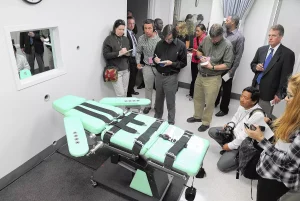WE inspires next generation
May 4, 2017
On Thursday, April 27, AP European students and PALS students went to WE Day at The Forum, in Los Angeles, and saw a wide variety of speakers including Selena Gomez, Demi Lovato, Alicia Keys, DJ Khaled, Alessia Cara and more. These leaders motivated youth to be the inspiration that our next generation needs.
WE is a movement designed to bring people around the world together and give them all a chance to change the world for the better. The founders of the corporation want to make a positive impact on the global community, and they yearn to raise a future generation of leaders. Leaders strive to make a difference with the motto of changing the world from “me” to “we.”
“Partnering with the WE movement has helped bring the program alive for our students; throughout the curriculum, we have seen effects of poverty over time and how communities changed, so hopefully with their project, they see that they can effect change,” said Heather Hanson, AP European History teacher.
WE teamed up with the College Board and created a program to encourage AP students to apply the skills they gain in their classes to real life social issues. Students explore issues such as hunger, poverty and lack of education and plan either one local or one global action to help improve upon these problems, and hopefully, abate them.
“I believe that the College Board does a great service to students with high goals by providing them with a possibility of excelling in their curriculum and gaining a new level of appreciation through hands-on education,” said sophomore AP European History student David Berger.
This opportunity is offered to the following AP classes: Computer Science A, Environmental Science, European History, Human Geography, Spanish Language and Culture, and Studio Art: 2-D Design. At LBHS the sophomore AP European History class has integrated the WE program into their curriculum.
“The prominence of the issues discussed in AP European History sheds light on the importance of poverty, women’s rights, and other social issues. Through the class you view how these problems have plagued” said Berger.
Through this program, European History students will pursue projects that will propose a way to help decrease poverty. Students must discuss the root causes of this pressing issue; the result of the program is an opportunity for students to consider their classroom work and how it applies to real-world topics, while working closely with their peers to address relevant needs in the local, national, and global community.
“I see future leaders in so many of my students; I see a genuine drive to make a positive impact on this world and on other people’s lives,” said Hanson. “They have the smarts, ethics, resources, drive, empathy and the humanity to be future leaders





